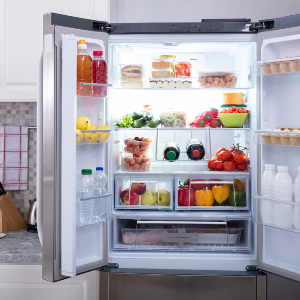
| | | | | | How to Invest in Your Security No Matter Where You Live | | | Editor's Note: As the coronavirus crisis continues, so do hiccups in our food supply chains. So it's a great opportunity for folks to turn to their own backyards - or living rooms - to grow their own food. What better way to ensure you're getting the healthy food you need? Joel Salatin, America's most famous farmer, can tell you no matter where you live or how little space you have, you can provide for yourself. Read on to learn more.
| | | | |  | Joel Salatin
Contributor |
| | | |
There are two extremes of security through disruptive times: being a wilderness mountain man hermit survivalist or joining a self-reliant and resilient rural community.
For all of us except the most militant introverts, going through crisis with others is more appealing than going through crisis alone.
And many will say it's always easier to ride out hard times in the country than in the city.
So how do you establish a self-reliant community without moving to the country? Can you create communal food security in an urban setting?
Absolutely. Let me show you how...
Maximize Your Space
First, are you doing everything possible with your own resource base? Remember, any surface that catches sunlight can grow plants. If you have a yard, you can have a garden.
Even on small plots you can grow substantial volumes. A fellow in Kenya procured some used 24-foot pipe culverts, cut them into 8-foot lengths, cut pockets in the sides (he cut a slit with a torch and then heated the metal to bend out a small pocket) and planted broccoli after he stuffed the tubes with compost and soil. In a tiny plot of land, he grew the equivalent of 12 acres of broccoli in a bunch of these vertical tubes.
You can hang old pieces of gutter or fabricate long boxes out of scrap wood or metal and essentially cover the southern side of your house with tray gardens, like glorified venetian blinds.
If you place these inside a solarium, you can grow year-round. I saw a guy in Minneapolis grow cold-hardy vegetables throughout the winter with a tray garden on the southern side of his garage in a solarium.
How about a roof? You can make a living roof by gentling the slope and beefing up the trusses. With perlite, soil and compost, you can grow vegetables on your roof.
Plus, all of this vegetation on and around your house will cool it down enough in the summer for you to turn off the air conditioner. How about that for a side benefit?
If you have a tree on your property or room for one, perhaps it can be exchanged or one could be planted that produces something edible. Edible landscaping is a foundational tenet of urban food security.
If any urban area would replace half of its current ornamental trees with fruit- and nut-bearing ones, it would bring a food forest to town. Trees can grow a tremendous volume of food in a small amount of land. | | | | | | Check Your Neighborhood
Second, look for vacant spots nearby. Plenty of urban community gardens on either public or private land show the production viability of small spaces.
One of my favorites is Michael Ableman's container gardens in Vancouver. He uses plastic tanks (like cattle troughs) filled with spent mushroom medium and compost to install mobile produce farms in the city.
Because available spots in the city routinely change owners, these containers are perfect where the land base is tenuous. He can load them onto a flatbed trailer and in a day move the whole produce farm to another location.
Three young couples in St. Louis built a beautiful and productive operation on a half-acre lot that became available after the city bulldozed a notorious dilapidated crack house. A simple hoop house provided cover for a quasi-outdoor kitchen that soon became a gathering spot for nearby families and especially children.
The 20-odd chickens (okay, only six were legal, but who cares about numbers?) lived almost exclusively on kitchen scraps that folks in the neighborhood started contributing to the effort. In no time, a full-on schedule of culinary and gardening classes created radiant knowledge and participation in the otherwise run-down neighborhood.
Don't forget the little spaces between a sidewalk and the street, or between a street and your yard. Steep banks offer terracing options to turn a landscaping maintenance nightmare into something truly beautiful and productive.
In Austria, along the Danube River, terraced vineyards grow on miles of steep mountain land. They're so steep you can hardly climb the slopes, but over centuries people used rocks to build terrace walls spaced wide enough to hold one row of grapevines.
It's one of the most beautiful landscapes you can imagine.
Make It Happen
Third, develop relationships with farmers, especially the ones who grow things you can't grow in the city, like dairy, poultry, meat and grains.
Many years ago I gave a speech at the University of Guelph in Ontario and shared the platform with a young Toronto attorney. She'd had a child a couple of years prior and told the story about how she and her husband contemplated what to do as parents for this new life.
Their first decision was to breastfeed - no small decision when you're a high-powered female attorney living in a sixth-floor condominium in Toronto. Then they decided to take all the recreational and entertainment time and money budget for one year and invest it in sourcing integrity food with the end goal of eliminating bar codes in their pantry.
To be sure, it would be harder to do this today as ubiquitous as bar codes are, but the bottom line is that they pulled this off. Instead of going on a cruise or to the theater, they invested that time in sleuthing local integrity provenance from surrounding farmers.
That story is both encouraging and challenging to me because it represents the pinnacle of conviction and personal can-do spirit. If she could do it there, what's my excuse?
Conservative financial guru Dave Ramsey says we tend to be successful at what we put attention on. You can invest today in a food security support network to build your stockpile and guarantee care during disruption.
You can't finish something you don't start, so if this agenda has not found a place on your calendar, today is day one to make it happen. Hang in there.
Sincerely,
Joel
Have you started growing your own food because of the coronavirus? Let us know your thoughts here. | | | | | | | | | | | | |
|








No comments:
Post a Comment
Keep a civil tongue.